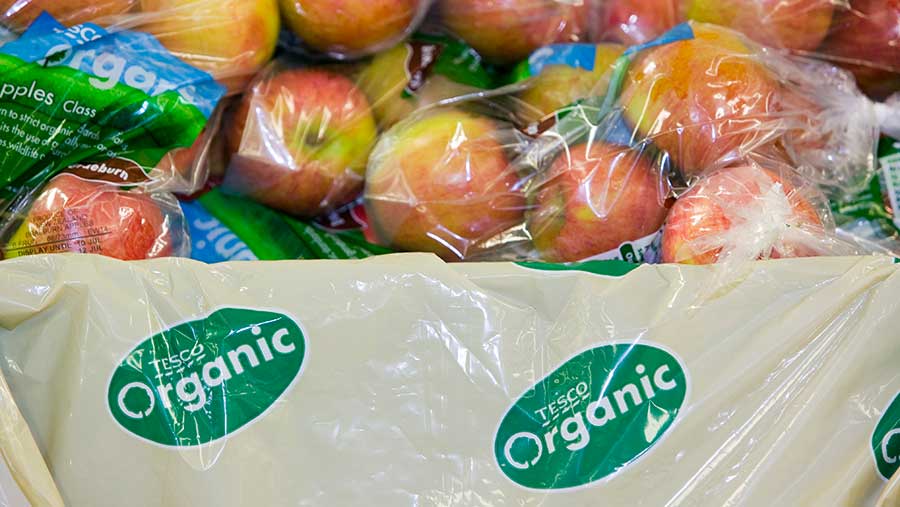Organic market achieves highest sales since 2008
 © Global Warming Images/REX/Shutterstock
© Global Warming Images/REX/Shutterstock Sales of organic goods have bounced back to levels last seen before the 2008 recession, with growth recorded in the dairy, beef, poultry and egg sectors during 2016.
The Soil Association has produced its annual Organic Market Report, which reveals that sales of organic goods, including food, drink, grocery items, textiles and beauty products, were worth £2.09bn in 2016 – 7.1% higher than in 2015.
The report said there had been particularly strong growth in the retail and food service sectors, which had returned total sales to their highest level for almost a decade.
See also: Why the organic farming market could be back on track
Supermarket sales of organic products have grown by 6.1% overall and are now worth more than £1.4bn.
Tesco has reported particularly strong growth over the past 12 months, with sales rising by 15%.
Taken together, Tesco, Waitrose and Sainsbury’s account for 75% of organic supermarket sales, with Sainsbury’s leading the way with a 27% market share.
Independent retailers have also seen an increase in sales of 6.3% (from £308m to £327m), while sales of organic home delivery boxes also grew by 10.5% during 2016.
Food service expansion
An area that saw fast expansion is the organic food service sector, which grew by 19.1% (now worth £76.6m), as major chains such as McDonald’s, Pret A Manger and Nando’s added more organic food to their menus.
The association acknowledged that the amount of land farmed organically in the UK had declined by 5% during the year, but land currently being converted to organic had increased by 4.9% – suggesting growing confidence.
The organisation also saw a 13.5% increase in applications for certification.
Positive outlook
Liz Bowles, head of farming at the Soil Association, said it had been a difficult time for all British farmers, but the future looked positive for organic.
“There are good opportunities for organic farmers if you find the right market. Dairy, beef, poultry and eggs have all seen sales growth this year.
“British farmers can take confidence in the fact that UK-produced organic products are highly regarded around the world, so export is and will continue to play a big part in UK organic.
“In addition, people are more aware than ever about buying British, and more aware about how their food is produced, which will help increase organic sales in the future.”
The Soil Association has predicted that sales of organics could rise by another 5% in 2017 and if growth continues at this rate, the sector will be worth £2.5bn by 2020.
What the Soil Association says about:
Dairy
Sales of organic dairy products increased by 3.2% during the year, but have stalled slightly because of the very low price of non-organic milk. Dairy products account for nearly 30% of the total organic market, with Yeo Valley and Rachel’s yoghurt brands among the biggest sellers.
Red meat
Red meat sales increased in early 2016, with some of the rise attributed to publicity following research by Newcastle University about the nutritional benefits of eating organic meat.
Poultry
Organic sales of chicken increased by 4.6% in 2016, while organic egg sales grew by 3.1%. Just over 2.5 million birds are kept in organic systems.
Box schemes
Organic box schemes are doing well, with increased sales. However, they are coming under pressure from companies offering recipe boxes, which contain all the ingredients needed to make a set of specified meals, as these offer greater convenience to shoppers.
